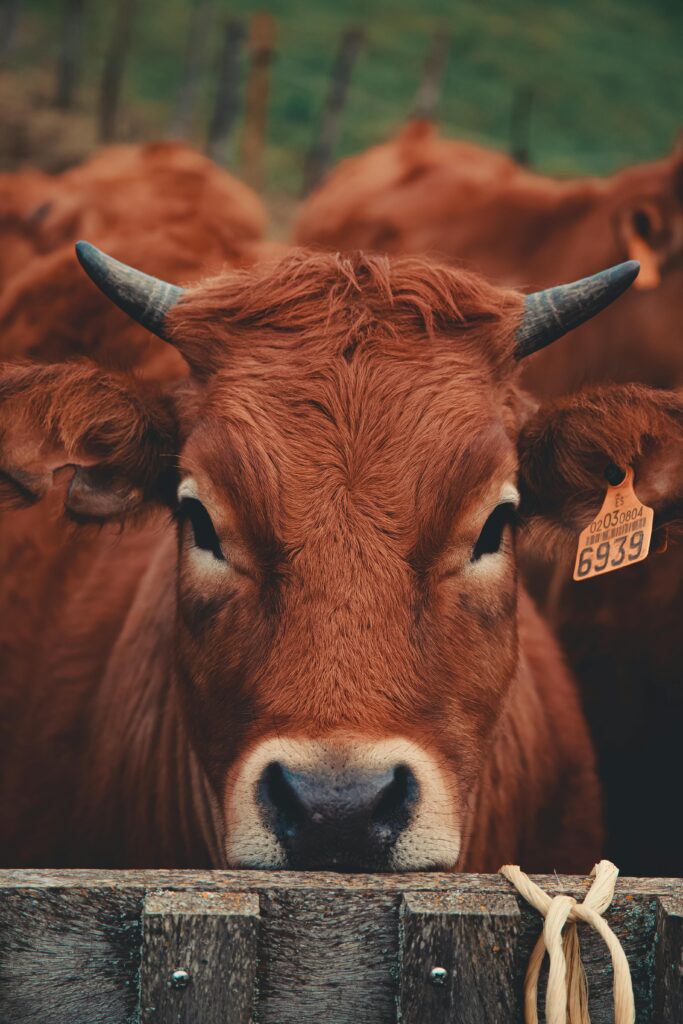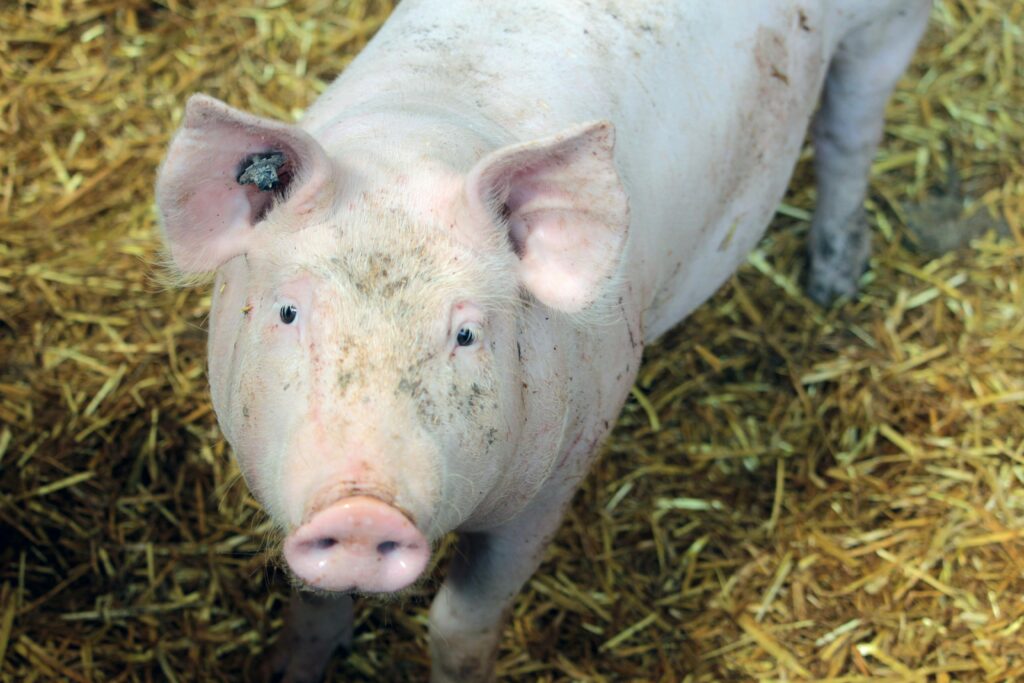Introduction: The Power of Your Plate in Fighting Climate Change
In recent years, going vegan has become one of the most talked-about solutions for both personal health and environmental sustainability. You may have heard that a plant-based diet can reduce your carbon footprint, but how exactly does veganism contribute to saving the planet? In this simple guide, we’ll break down the science behind it, explain why it matters, and show how making small changes to your diet can have a profound impact on the environment.
1. “How Going Vegan Can Reduce Greenhouse Gas Emissions
Key Point: Animal agriculture is a major contributor to greenhouse gases.
When you think about climate change, you probably think of factories, cars, or power plants. However, animal agriculture—especially the meat and dairy industries—plays a huge role in contributing to global warming. In fact, livestock farming accounts for nearly 15% of global greenhouse gas emissions. This is due to factors such as:
- Methane emissions from cows, sheep, and other livestock, which is 25 times more potent than carbon dioxide.
- Deforestation to create grazing land and grow feed for animals.
- Fossil fuels used in farming equipment, transport, and refrigeration.

Carbon Footprint by Food Type (kg CO₂ per kg of food produced):
| Food Type | Carbon Footprint (kg CO₂) |
|---|---|
| Beef | 60 kg CO₂ |
| Lamb | 24 kg CO₂ |
| Cheese | 21 kg CO₂ |
| Poultry | 6 kg CO₂ |
| Tofu | 3 kg CO₂ |
| Lentils | 0.9 kg CO₂ |
By choosing a vegan diet, you can significantly reduce the demand for animal-based products, thereby reducing the emissions associated with their production. A plant-based diet emits far fewer greenhouse gases and requires less energy and water than meat-heavy diets.
2. How a Vegan Diet Helps Conserve Water: A Precious Resource
Key Point: Producing plant-based foods uses far less water than raising animals.
The water consumption involved in producing animal products is staggering. For example, producing just 1 pound of beef requires about 1,800 to 2,500 gallons of water, while a pound of vegetables typically requires less than 100 gallons. This includes water for drinking, growing feed, and processing meat.
| Food Type | Water Usage (liters) |
|---|---|
| Beef | 15,000 L |
| Pork | 6,000 L |
| Chicken | 4,300 L |
| Rice | 2,500 L |
| Vegetables | 300-500 L |
As climate change exacerbates water scarcity in many regions of the world, reducing the demand for animal products can help conserve water resources. By switching to a plant-based diet, you’re helping to lessen the strain on global water supplies.
3. Combatting Deforestation and Habitat Destruction
Key Point: Animal agriculture is one of the leading causes of deforestation.
Forests, particularly in tropical regions, are being cleared at an alarming rate to create space for cattle grazing or to grow animal feed crops like soy. This deforestation not only reduces the planet’s ability to absorb carbon dioxide but also destroys vital ecosystems that many species depend on.
A shift toward plant-based food production can help protect forests, as it requires less land to produce plant-based foods than animal agriculture does. For example, it’s much more efficient to grow grains or legumes to feed humans than to raise animals on that same land for meat consumption.
4. How a Vegan Diet Helps Protect Biodiversity and Ecosystems
Key Point: Protecting ecosystems from livestock farming helps preserve wildlife.

As more forests and natural habitats are destroyed to create space for animal farming, many species are pushed closer to extinction. Animal agriculture is the leading cause of habitat loss for many species, particularly in areas like the Amazon rainforest.
By choosing plant-based alternatives, you’re directly helping to preserve biodiversity by reducing the demand for livestock farming and the destruction of ecosystems. Many plant-based foods, such as grains, beans, and vegetables, can be grown sustainably without compromising the environment or animal habitats.
Comparing Diets and Their Environmental Impact
Different diets have varying effects on greenhouse gas emissions, land use, and water consumption. Below is a comparison of the most common diets:
| Diet Type | Carbon Emissions | Land Use | Water Use | Biodiversity Impact |
|---|---|---|---|---|
| Vegan | 🌱 Lowest | 🌱 Lowest | 🌱 Lowest | 🌱 Minimal Impact |
| Vegetarian | ✅ Low | ✅ Moderate | ✅ Moderate | ✅ Low Impact |
| Pescatarian | ⚠️ Moderate | ⚠️ Moderate | ⚠️ High (Fishing/Aquaculture) | ⚠️ Moderate |
| Flexitarian | 🔹 Moderate | 🔹 Moderate | 🔹 Moderate | 🔹 Low to Moderate |
| Omnivore | ❌ High | ❌ High | ❌ High | ❌ High |
| Carnivore | 🚨 Very High | 🚨 Very High | 🚨 Very High | 🚨 Severe Impact |
5. Lowering the Use of Harmful Pesticides and Fertilizers
Key Point: Vegan diets are often based on crops that are more sustainable.
While it’s true that agriculture itself can have an environmental impact (in terms of pesticides, fertilizers, and energy use), plant-based diets generally involve fewer chemicals and less environmental degradation. This is especially true when eating whole, organic foods such as fruits, vegetables, and grains, which tend to have a lighter ecological footprint than processed animal products.
Additionally, growing crops for human consumption typically requires fewer harmful inputs than raising animals. This reduces the overall impact of farming on both local ecosystems and the climate.
6. Supporting Sustainable Food Systems
Key Point: Veganism promotes a more equitable and sustainable food system.
The global food system is heavily reliant on industrialized farming, which often focuses on mass production of meat and dairy. These systems are energy-inefficient and require vast amounts of resources. The shift to plant-based food systems promotes the idea of more localized, sustainable agriculture, where crops are grown for human consumption rather than livestock feed.
A plant-based food system also supports food security. By producing more food directly for human consumption, rather than for livestock, the global food system could more effectively feed the world’s growing population, reducing hunger and malnutrition in the process.
7. Health Benefits: It’s a Win-Win for You and the Planet
Key Point: Going vegan is not only good for the planet, it’s good for your health too.
Making the transition to a vegan diet can have numerous health benefits, including:
- Reduced risk of heart disease, diabetes, and certain cancers.
- Weight management and improved digestion.
- A more sustainable, long-term approach to healthy living.
When you eat more plant-based foods, you’re not only helping the environment, but you’re also promoting a healthier lifestyle for yourself and your community.
Conclusion: Small Changes, Big Impact
Key Point: Every small change in your diet counts towards creating a sustainable future.
✅ YES, adopting a vegan or plant-based diet is one of the most effective ways to reduce emissions, conserve water, and protect biodiversity.
✅ BUT, even small changes like reducing meat intake, choosing sustainable seafood, and minimizing food waste can have a major impact.
Going vegan doesn’t mean you have to change everything overnight. Even reducing your intake of animal products, such as participating in “Meatless Mondays,” can have a significant impact. The collective effort of individuals shifting toward a plant-based diet can help reduce greenhouse gas emissions, save water, preserve biodiversity, and contribute to a more sustainable food system.
By choosing a vegan diet, you’re not only nourishing your body but also helping to protect the planet for future generations. So why not start today? Your health—and the planet—will thank you.
“Becoming vegan is not the only solution, but I believe it is the first step we should take. It’s not just about saving the planet—it’s also about improving the quality of our lives. How can we justify killing animals simply for the sake of taste, without understanding the consequences?”
Call to Action: Start Your Vegan Journey Today!
If you’re ready to take the first step toward a more sustainable, eco-friendly lifestyle, and advice on how to make the change easier., and your choices can make a world of difference
“For those who consume non-veg and dairy products, or use whey protein for their protein requirements, they can consider switching to plant-based protein supplements.”
From amazon: – https://amzn.to/4iscpbW
From amazon: – https://amzn.to/4bPS4L6
They are easy to digest, all essential amino acids, in 1 serving you will get around 24g protein in only 100g calories.
IF THIS USEFUL AND KNOWLEDGEABLE, THEN PLEASE SHARE IN YOUR SOCIAL MEDIAS ACCOUNT AND GIVE FEEDBACK OR COMMENT IF ANY QUESTIONS.

